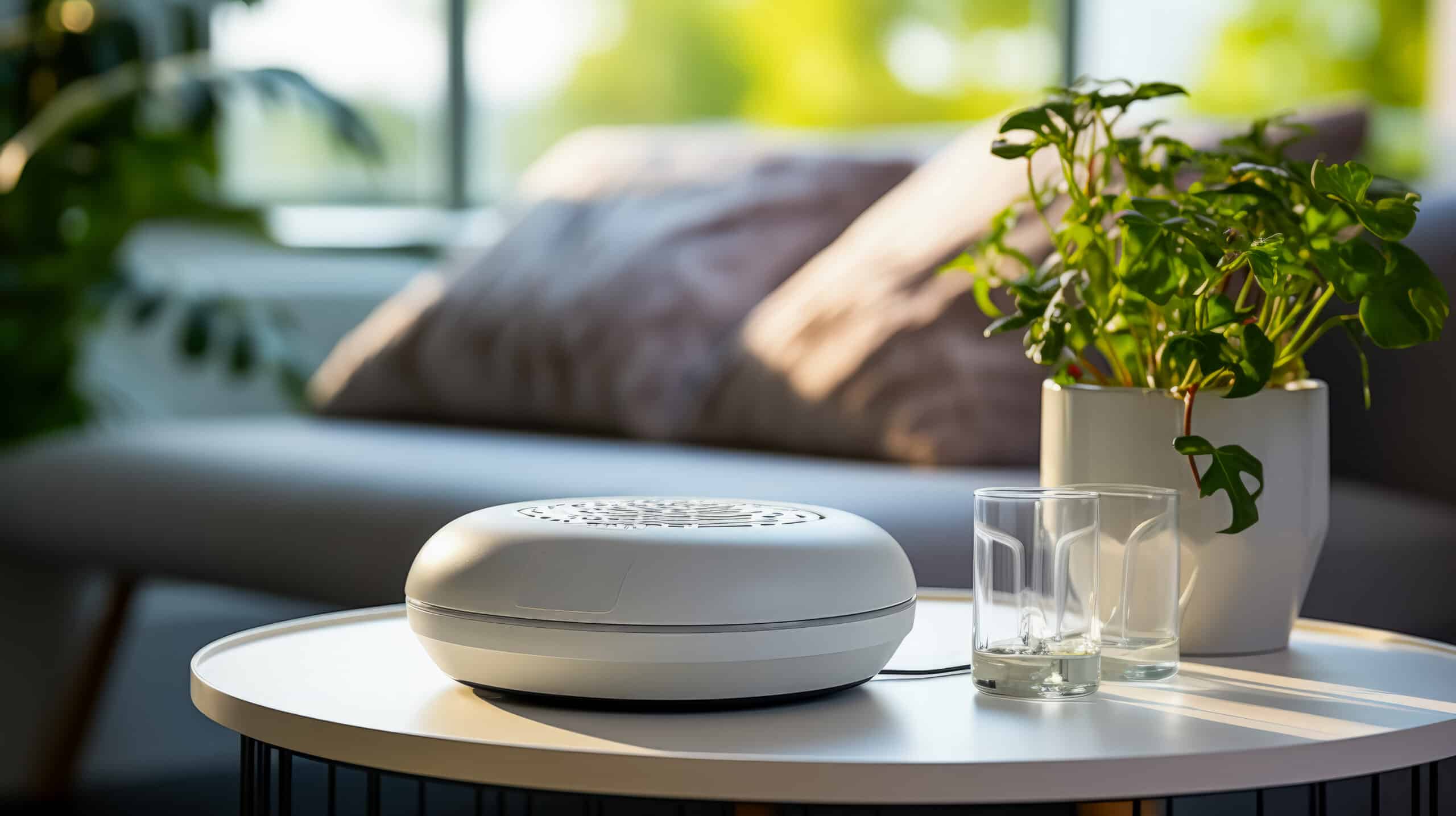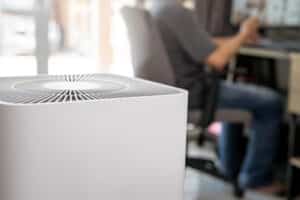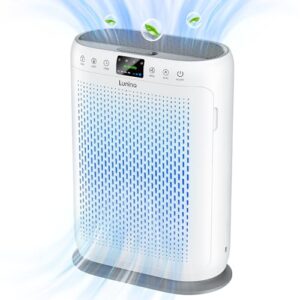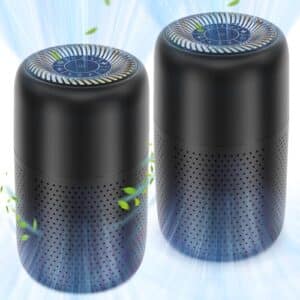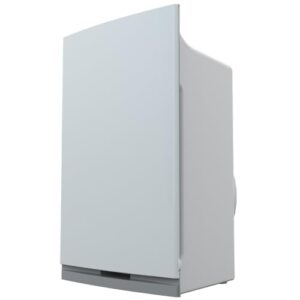Are there specific types of air purifiers for different indoor air quality concerns?
Key Takeaways
- Air purifiers with high-efficiency particulate air (HEPA) filters are recommended for dust allergies, as they can capture particles as small as 0.3 microns.
- To effectively combat pet dander, air purifiers with HEPA filters are recommended, along with additional technologies like activated carbon filters.
- Air purifiers with activated carbon filters are highly effective in removing smoke and odor, while those with high-capacity filters and UV-C light sterilization are beneficial for tackling mold and mildew.
Indoor air quality is an important aspect of our overall health and well-being. Many factors can affect the quality of the air we breathe, including dust, pet dander, and allergens. To address these concerns, air purifiers have become increasingly popular. But are there specific types of air purifiers for different indoor air quality concerns?
While the mentioned sources provide valuable insights into air purifiers for specific concerns, it is essential to explore further to gain a comprehensive understanding.
Air Purifiers for Dust Allergies
When it comes to dust allergies, it is crucial to choose an air purifier with a high-efficiency particulate air (HEPA) filter. HEPA filters are designed to capture particles as small as 0.3 microns, including dust mites, pollen, and pet dander. These filters are highly effective in reducing airborne allergens and improving indoor air quality.
While the first provided source does not mention specific types of air purifiers for dust allergies, there are several reputable brands known for their efficient dust removal capabilities. Some popular options include the Rabbit Air MinusA2, Dyson Pure Cool, and Coway AP-1512HH Mighty Air Purifier. These models are equipped with HEPA filters and additional features such as activated carbon filters and air quality sensors.
Related Websites: Healthline
Air Purifiers for Pet Dander
Pet dander, consisting of microscopic skin flakes from animals, can trigger allergies and respiratory issues in sensitive individuals. To effectively combat pet dander, air purifiers with HEPA filters are recommended. The second provided source does not directly mention the best air purifiers for pet dander, but according to Forbes Vetted, the Levoit Core P350 Pet Air Purifier is highly recommended for this purpose.
Additionally, the third provided source from Better Homes & Gardens suggests a range of air purifiers specifically designed to tackle pet dander. Some of the top-rated models include the Rabbit Air A3, Winix Air Purifier, Alen BreatheSmart 75i, Black+Decker BAPUV350, Coway Airmega 400S, Dyson Purifier Cool, Bissell Smart Air Purifier, and Blueair Blue Pure 411i Max.
These air purifiers combine HEPA filtration with other technologies like activated carbon filters and ionizers to effectively capture and eliminate pet dander and odors.
Related Websites: The Spruce Pets, Forbes, Better Homes & Gardens
Other Air Quality Concerns
While dust allergies and pet dander are common concerns, there are various other indoor air quality issues that can be addressed by specific types of air purifiers.
Smoke and Odor
For smoke and odor removal, air purifiers with activated carbon filters are highly effective. These filters have a porous structure that can absorb and neutralize odorous molecules, including those from smoke, cooking, and chemicals.
Mold and Mildew
To combat mold and mildew, air purifiers with high-capacity filters and UV-C light sterilization can be beneficial. These features help eliminate mold spores and prevent their growth, improving the overall air quality in damp or humid environments.
Chemicals and VOCs
Air purifiers equipped with activated carbon filters and additional features like photocatalytic oxidation (PCO) or granular activated carbon (GAC) filters are effective in reducing volatile organic compounds (VOCs) and other harmful chemicals present in indoor air.
Conclusion
When it comes to different indoor air quality concerns, specific types of air purifiers can address these issues effectively. For dust allergies, air purifiers with HEPA filters are recommended. For pet dander, HEPA filters combined with additional technologies like activated carbon filters are ideal. Other concerns, such as smoke, mold, mildew, and chemicals, can be tackled with air purifiers designed specifically for these purposes.
It is important to consider the size of the room, the filtration efficiency, and additional features when selecting an air purifier for a specific indoor air quality concern. Reading user reviews and consulting experts can also provide valuable insights in making an informed decision.
Related Websites:
FAQs:
Q: Why is indoor air quality important?
Indoor air quality is important because it directly affects our health and well-being. Poor indoor air quality can lead to allergies, respiratory issues, and other health problems. Air purifiers help improve indoor air quality by removing pollutants and contaminants.
Q: What are the common indoor air quality concerns?
Common indoor air quality concerns include allergens, such as dust mites and pet dander, smoke, odors, and chemicals. Identifying the specific concern is crucial in choosing the most suitable air purifier.
Q: What is a HEPA filter?
A HEPA filter is a high-efficiency particulate air filter. It is extremely efficient in capturing small particles like allergens and dust. HEPA filters are ideal for addressing allergy-related indoor air quality concerns.
Q: How do activated carbon filters work?
Activated carbon filters absorb and neutralize odors, gases, and chemicals. They are highly effective in combating odor-related indoor air quality concerns.
Q: What are UV-C light purifiers?
UV-C light purifiers use ultraviolet light to eliminate bacteria, viruses, and mold spores. They are well-suited for addressing microbial-related indoor air quality concerns.

